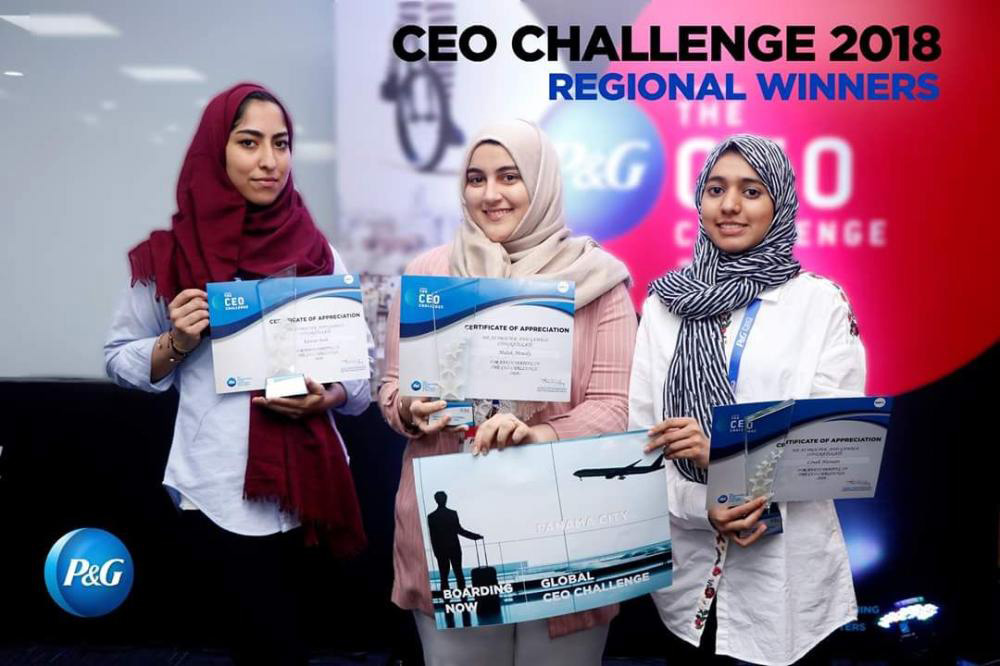
Great news from Saudi Arabia as a team of three female engineering students nabbed first place this week in a competition by global giant Procter & Gamble (P&G), proving that the Kingdom’s women are excelling in traditional male-dominated fields. The team reached the final round of P&G’s Global CEO Challenge, which put contestants in the shoes of executive leaders to deal with a case involving the Head & Shoulders shampoo brand, beating some 3,500 students across Africa and Asia.
According to Saudi Gazette, the students who are set to graduate this summer were amongst 40 others in the Industrial Engineering undergraduate program at King Abdulaziz University, the first university in Saudi Arabia to offer the degree to female students.
Speaking to the news site, team member Malak Mously explained that the competition provided them with the opportunity to work in an international environment, to gain valuable business skills, and to put Saudi Arabia on the map.
“It was a learning experience where we represented Saudi Arabia and showed the world there are women engineers in the Kingdom just like in other countries. It was an indirect way to break any kind of stereotype about the Kingdom,” she said.
Other team member Linah Hussain explained that, in Saudi Arabia, some stereotypes remain, saying that although many still think that a woman may not be able to handle the tough job of an engineer or that she is too fragile, internships and trainings have helped change the minds of some executive leaders.

“Some companies where we interned were at first skeptic about our abilities but then we proved we could deliver. The feedback they gave us was that we did the work more thoroughly than they expected and delivered well. I’m happy we left a good mark that would encourage them to hire women in their organizations,” she said.
This competition, amongst other milestones achieved by Saudi female engineers over the last few months, are an indication that real change is finally taking place on the ground within the field. This has been partly due to Vision 2030, a nationwide plan with a number of objectives that aim to instigate social and economic reforms, a key one being increasing the number of women in the workforce.
Two years ago, Arab News reported that more than 90 percent of female graduates from engineering colleges in the Kingdom were faced with little opportunity in the job market and were being forced to work in administrative positions.

















